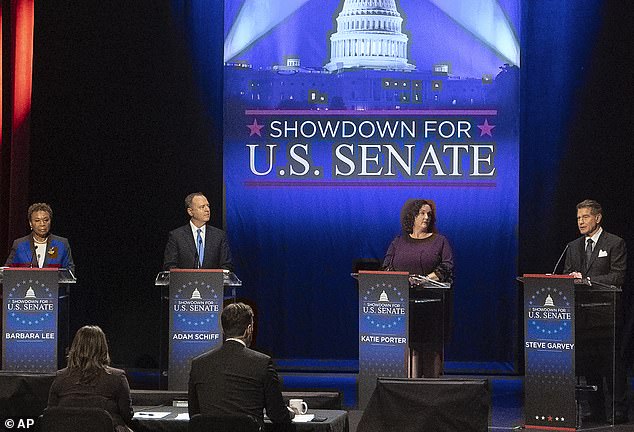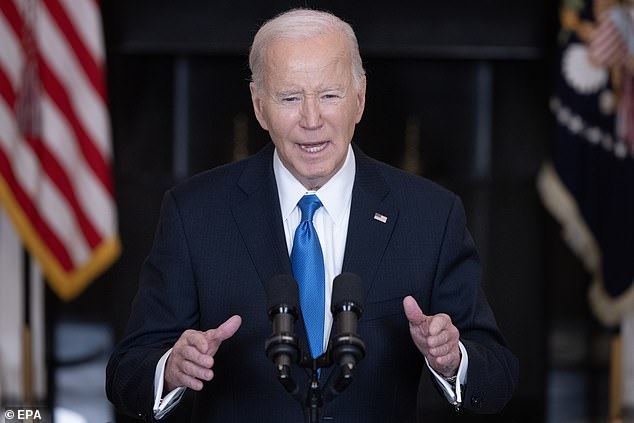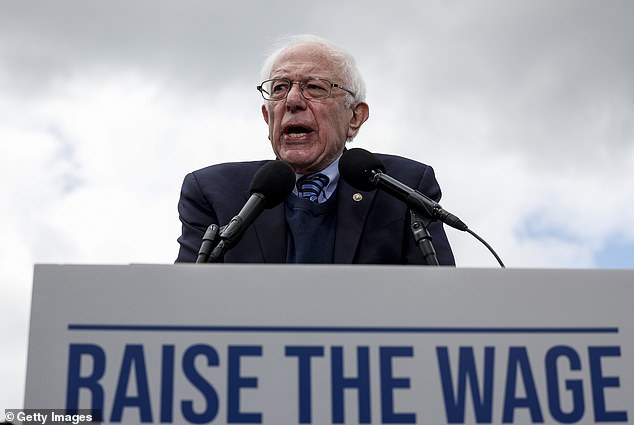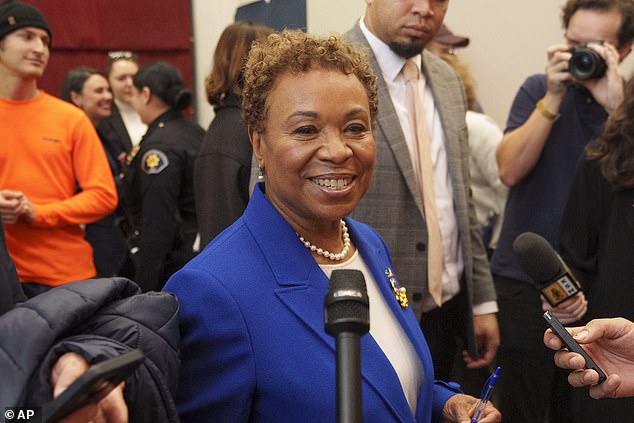- The federal minimum wage is $7.25 an hour; California’s minimum wage is $16
- Rep. Lee Runs in Competitive Race for US Senate in California
- He doubled down on the need for a $50 minimum wage during a debate
Democratic Congresswoman Barbara Lee defends her call for a $50 federal minimum wage. That’s more than six times the current federal minimum wage in the United States.
Lee is running in a competitive Senate race to fill the seat of the late Democratic Sen. Dianne Feinstein. She maintains that Californians cannot survive on less than $100,000 a year due to the state’s cost of living crisis.
Lee was asked during a Senate debate Monday how his $50 an hour minimum wage proposal would be economically sustainable for small businesses. She claimed that she has been a small business owner that “created hundreds of jobs” and argued that employees need to be taken care of and have a “living wage.”
“Just do the math, just do the math,” Lee said during the debate.
The current national minimum wage is $7.25 an hour. California’s minimum wage is $16 an hour.
“In the Bay Area, I think the United Way put out a report that very recently $127,000 for a family of four is barely enough to get by,” Lee said. “Another survey does very recently: $104,000 for a one-person family, barely enough to survive.”
While Lee acknowledged some calls to raise the federal minimum wage to $20 or $25 an hour, he said he needs to focus on what Californians need and what is considered affordable in his state.
California Democratic Rep. Barbara Lee, who is running for the U.S. Senate, has called for the minimum wage to be $50 an hour, saying in a recent debate, “Do the math!”

Rep. Barbara Lee, Rep. Adam Schiff, Rep. Katie Porter and Steve Garvey are vying to fill the seat of the late California Sen. Dianne Feinstein.
Lee currently represents California’s 12th district, which includes Oakland and Berkeley, and has been a member of the House since 1998.
She is in a crowded U.S. Senate race that includes fellow Democratic lawmakers Adam Schiff and Katie Porter, as well as former Republican professional baseball player Steve Garvey.
Schiff and Porter have expressed support for a minimum wage of between $20 and $25 an hour. Garvey said during the debate that the minimum wage is “where it should be.”
The federal minimum wage has not changed since 2009 despite increases in the cost of living. Democrats in Washington have been trying to raise the federal minimum wage for years, but their efforts have been unsuccessful.
The closest they have come in recent years was in 2021, when Democrats tried to include a gradual increase in the minimum wage to $15 an hour as part of their COVID relief legislation, but their efforts were blocked by Republicans and some moderate democrats.

President Biden has called on Congress to raise the federal minimum wage to $15. but efforts to raise it have so far been blocked. The president’s effort to raise the minimum wage for contract workers in the U.S. has also faced legal hurdles.

Senator Bernie Sanders introduced legislation that will increase the minimum wage to $17 an hour in 2023.
According to some studies, even a minimum wage of $15 is not considered a “living wage.”
MIT researchers calculated that the living wage in the United States was $25.02 an hour or $104,077 before taxes for a family of four in 2022.
According to data from the United States Census Bureau, the median family income is just over $74,000. In California, the median household income is more than $91,000, but salaries in the state vary widely from city to city. The median household income in San Francisco is more than $136,000, while the median household income in San Bernardino County is just over $77,000, census data show.
Lee’s call for a massive increase in the federal minimum wage comes as the United States has seen prices skyrocket in recent years due to the coronavirus pandemic.
While inflation has eased somewhat since peaking at 9.1 percent in 2022, prices remain high across the board, including housing and food.
Opponents of raising the minimum wage, including some Republican lawmakers, have expressed concern that doing so would further fuel inflation.
But multiple polls have found that a majority of Americans support raising the minimum wage. Pew found that 62 percent of American adults support raising the minimum wage to $15. Even among those who oppose raising the minimum wage to $15 an hour, the vast majority agree that it should be raised, but that the standard should be less than $15.

